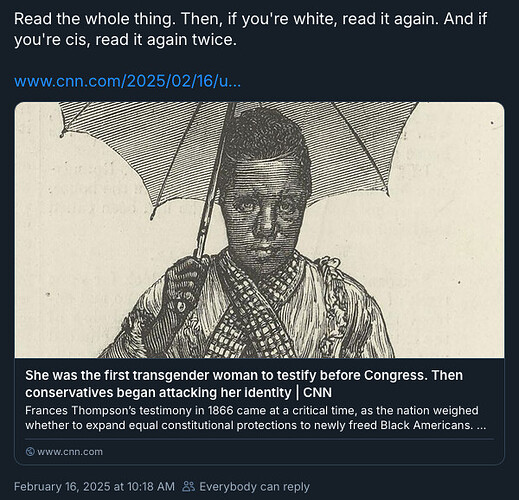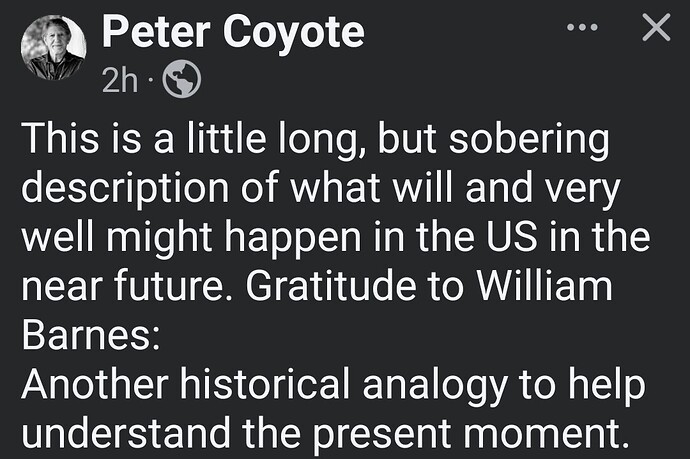It’s up to us to keep the truth about our shared history alive.
Should we really be opening Egyptian tombs right now? This year, of all years?
There is another theory which states that somebody already has been.
Nils Gilman
February 20, 2025Here’s an analogy for you: what we’re seeing in the United States with Trump and DOGE bears more than a passing resemblance to the so-called shock therapy that post-Communist successor elites imposed on Eastern Europe in the 1990s. Then and now, what took place was a “rapid unscheduled disasembly” of the state — to begin with the parts of the state responsible for cultural indoctrination, but also the parts responsible for social care and welfare.
The similarity is especially marked insofar as the operational methods of the post-Communists and of Trump 2.0 both proceed from similar ideological and structural assessments of the systems they’re bent on disrupting. In both cases, those imposing the shock therapy shared the belief that the only way to impose change on what they saw as a deeply institutionalized, operationally sclerotic, and ideologically hidebound system was to do so wholesale and with irrevocable brutality.
They shared the belief that gradualism would fail because easy-as-she-goes would give time for the systemic-institutional antibodies to kick in to thwart the change they wanted. They shared the belief that the cuts had to be so deep and profound that even if the old elites somehow returned to power, the deconstruction already imposed would be so severe as to make it impossible for the old elite to restore the old institutional order or its own political power. Finally, they shared the belief that if what’s required to make this transition irrevocable is tremendous social suffering, then so be it.
Then and now, these are not sentimental men.
In terms of hard-nosed politics, they’re not wrong. “A revolution is not a dinner party,” Mao Zedong famously remarked. Nor is it “writing an essay, or painting a picture, or doing embroidery; it cannot be so refined, so leisurely and gentle, so temperate, kind, courteous, restrained and magnanimous. A revolution is an insurrection, an act of violence by which one class overthrows another.” It required the application of raw and pitiless power — a power which at the end of day, Mao observed in conclusion to the same essay, “comes from the barrel of a gun.” Revolutions are not genteel affairs.
The rest
But let’s remind ourselves of the profound human cost of shock therapy. In Poland in 1990-1991 industrial output fell by almost 40% and national income by over 20%. Investment also fell by a fifth, as the United Nations Development Program reported, while unemployment rose to over 10%. Russia suffered the worst peacetime increase in mortality ever experienced by an industrialized country: life expectancy fell from 69 in 1990 to 64.5 in 2005. The results for males was especially brutal. For example, the British Medical Journal in 1999 reported significant drops in life expectancy in Armenia, Belarus, Bulgaria, Latvia, Lithuania, and Romania. The immediate cause of the rising mortality… is the rise in self-destructive behaviour, especially among men. Old problems such as alcoholism have increased; drug misuse — a relatively new problem in the former communist bloc — has risen dramatically in recent years. The report Transition 1999 stated that suicide rates have climbed steeply too, by 60% in Russia, 80% in Lithuania, and 95% in Latvia since 1989.
The BMJ article quoted an economist at the United Nations Development Fund saying that the top-down revolution imposed on Eastern Europe was the biggest “killer we have seen in the 20th century, if you take out famines and wars. The sudden shock and what it did to the system… has effectively meant that five million [Russian men’s] lives have been lost in the 1990s…. The typical patterns are that a man loses his job and develops a drinking problem. The women then leave and the men die, first emotionally and then physically.”
Whether such a price is worth paying depends of course on how terrible you consider the system you are trying to root out. To be sure, the decision is easier if the people making those decisions aren’t personally paying said price, but instead are imposing them on others — as was true in Eastern Europe in the 1990s and is again now in the DOGE-ified United States. This is why MAGA likes to think of its victims as NPCs whose losses are as meaningful as those of the faceless hordes in video games. Such callousness regarding social losses is the 21st century answer to Stalin’s classically 20th century line that, “a single death is a tragedy, a million deaths are a statistic.”
Standard disclaimer: No two historical cases are identical, so note the differences. Since I’m playing with an historical analogy, this is also a chance for me to trot out one of my hobbyhorses, which is that whenever one deploys any historical analogy, one should always note not just the similarities between the cases, but also the important differences. So here’s a few.
First, whereas the late stage Eastern European communist economies had been stagnating for decades, and everyone knew it, the mid-2020s United States’s economy was the strongest in the world, indeed the engine of the world economy as a whole. Which raises questions about the urgency of the changes Trump/DOGE is imposing — and therefore how much sustained political support there will be for brutal measures to impose such changes. (It’s one thing to impose savage social consequences in order to turn around an economy that is manifestly failing; it’s another to do so because you’re annoyed by your HR department’s sensitivity training.)
Second, even if MAGA likes to believe that “woke” or “liberal” is basically a synonym for “communism,” the structural organization of the ancien regime that the shock therapists in each case believed needed changing is very different. In Eastern Europe you had Communist Party-run states whose bureaucrats had little separate authority from the party and little-to-no tradition of the rule of law. In America, you have a competitive party system of long standing with an independent, professionalized civil service, as well as an extremely deep civil society, long backed by the rule of law. The forms of resistance to change in both cases is therefore likely to be very different.
Third, the infospheres are radically different. The Eastern European shock therapy programs were imposed on societies in which the state had long been in control of the media apparatus, and where independent media was essentially brand new and mostly took the form of print journalism. The current American shock therapy is taking place despite deep opposition from print journalism — now considered “legacy media” — but instead with the backing of a vast algorithmically amplified bullshit production machine. This means the information warfare aspect of the two revolutionary programs is going to look very different.
Despite these important differences, the urge to blow up the institutions is very similar. These are both right wing revolutionary programs, carried out by self-dealing elites in the name of popular sovereignty. We will see how differently this one unfolds.
The shock therapy that post-Communist successor elites imposed on Eastern Europe in the 1990s…
was also in no small way designed/influenced/implemened/imposed/enforced (take your pick) by the usual suspects of international management consultantcies, merchant banks, commodities traders and interested western governments.
Based upon a comic book, Coccoon tells the story of a group of schoolgirls forced to fight in a war without being party of the army. This cartoon is being produced by the Japanese NHK to celebrate the 80 years of the end of WWII.
More japanese cartoons about the life of the civilians during and after the war:
That’s a very interesting and probable take on what’s going on. Straight back to good old Naomi…
Tis indeed a shocking doctrine.











